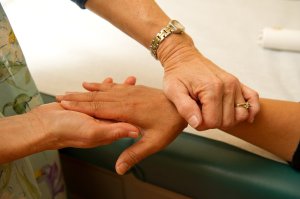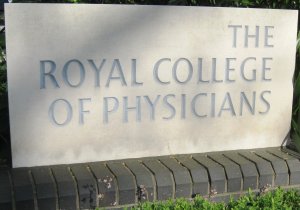We support patient autonomy and work to protect patients from the imposition of other people's personal religious views.
There is widespread support amongst the public for a compassionate law that permits assisted dying under certain circumstances.
But religious lobbying exerts a disproportionate influence on the debate on assisted dying, frustrating much-needed reform.
Assisted dying (AD) is when a person chooses to be given help to die, usually because they are terminally ill and suffering unbearably.
AD is legal in a growing number of countries around the world. In all these jurisdictions there are strict guidelines and safeguards to ensure AD is not misused. Where AD is an option, it complements palliative care rather than replacing it.
AD is not explicitly legal anywhere in the UK. Terminally ill people who wish to end their suffering more quickly have very few options.
Travelling to a country where their death can be assisted legally isn't a viable option for most, due to the high expense and the difficulties in travelling with a terminal illness. What's more, friends and relatives who accompany or help someone travel abroad for AD may be prosecuted.
Terminally ill people in the UK may therefore resort to taking their own life, leading to botched suicides, or asking the help of loved ones. This puts friends and relatives in a horrendous position: either they must watch their loved one suffer, or they must help them die and risk jail in the process.
The largest poll ever conducted on assisted dying found 84% of people in Britain support a change in the law. This includes 82% of Christians and 90% of nonreligious people.
Many regard refusing people a final relief from unbearable suffering as a harmful act. But strong opposition to AD comes from religious leaders who think AD goes against the will of their gods.
We support the democratic right of all people to contribute to the debate on AD. But policy decisions should be guided by evidence, compassion and respect for the principle of patient autonomy, rather than religious dogma. The views of the general public, professionals and relevant organisations should be fairly reflected at policy level.
Within the National Secular Society, individual members hold a range of views about AD. All are agreed that religious privilege should have no place in the decision-making process.
Take action!
1. Write to your MP
Ask your MP to support properly regulated assisted dying.
2. Share your story
Tell us why you support this campaign, and how you are personally affected by the issue. You can also let us know if you would like assistance with a particular issue.
3. Join the National Secular Society
Become a member of the National Secular Society today! Together, we can separate religion and state for greater freedom and fairness.
Latest updates
Poll: 84% of Brits would support legalisation of assisted dying
Posted: Wed, 3 Apr 2019 13:21
Five out of six people in Britain are prepared to support the legalisation of assisted dying for terminally ill, mentally competent adults, a poll has found, despite religious institutions' opposition.
A survey of more than 5,000 people from England, Wales and Scotland, conducted by Populus, has found that 84% of people would support legal reform if appropriate safeguards were in place.
The figure has risen from 82% since the most recent equivalent poll in 2015 and defies consistent opposition to reform from religious institutions.
Last month the Church of England reaffirmed its opposition to change after the Royal College of Physicians dropped its opposition to reform and adopted a neutral stance.
The bishop of Carlisle James Newcome said: "The Church of England's position remains to affirm the intrinsic value of every human life, and express its support for the current law on assisted suicide."
Newcome has sat in the House of Lords as one of the 26 Anglican bishops entitled to do so since 2013. The National Secular Society campaigns to end religious representatives' automatic right to sit in the Lords.
The Catholic Church opposes assisted dying and has bankrolled campaigns against it internationally. The Muslim Council of Britain has opposed efforts at legalisation. The Board of Deputies of British Jews aims to ensure "mainstream medical practice is not in conflict with Jewish ethics" on assisted dying.
A broad coalition of faith leaders opposed a bill proposing the legalisation of assisted dying in 2014. A similar bill was overwhelmingly rejected by MPs the following year.
A recent investigation by openDemocracy has also revealed that a US-based Christian right group, the Alliance Defending Freedom, is supporting anti-assisted dying campaigns as it dramatically increases its spending in the UK.
The NSS argues that religious groups' views should not obstruct the legalisation of assisted dying.
In response to the latest poll an NSS spokesperson said: "This poll shows that a significant proportion of British people are prepared to support assisted dying, provided appropriate safeguards are in place. It is vital that dogmatic religious institutions are not given an excessively prominent place in this debate and allowed to frustrate this popular reform.
"Reasonable concerns over assisted dying should be heard and addressed. But religious institutions must not be allowed to undermine the individual autonomy of those who do not share their particular theological interpretation on this issue."
Many ordinary people from most faith groups appear out of step with faith leaders. This was particularly true of Christians, 82% of whom would be prepared to support reform.
The poll also found that 52% of people would feel more positively towards their MP if they supported assisted dying, compared to six per cent who would feel more negatively.
The poll found that support was consistently strong across demographics including gender, age, social grade and region, with particularly strong support among those who said they had a disability.
Eighty-seven per cent of people in Scotland backed the change. Over the weekend nine MSPs from across the political divide called for the legalisation of assisted dying in Scotland.
Sarah Wootton, the chief executive of campaign group Dignity in Dying, said: "Voters for every political party, in every region of Britain and across all age groups want to bring our laws into line with other countries like Canada, the USA and Australia."
The news comes as the governor of the US state of New Jersey prepares to sign a bill legalising assisted suicide which passed its legislature last week.
Doctors’ body drops opposition to assisted dying
Posted: Thu, 21 Mar 2019 15:22
The National Secular Society has welcomed a decision by a professional body which accredits physicians in Britain to drop its opposition to the legalisation of assisted dying.
The Royal College of Physicians (RCP) has adopted a neutral stance on the issue despite attempts from conservative Christian groups to ensure it continued to have an anti-assisted dying stance.
The RCP's president said the college now "neither supports nor opposes a change in the law" and will not focus on assisted dying in its work.
The change reverses 13 years of RCP policy and will give doctors greater freedom to engage in the debate around legalisation.
The RCP's decision comes after its council, its main decision-making body, held a survey of its members' views on assisted dying. Before holding the survey it said it would take a neutral stance unless there was a super-majority of 60% either in favour of legalisation or against it.
Almost a third of RCP members (31.6%) supported a change in the law, a significant increase from the 24.6% who supported it in the body's most recent survey in 2014.
Just over four in ten (43.4%) thought the RCP should be opposed, a slight drop from 2014. A quarter of respondents thought the RCP should be neutral.
Shortly before the RCP's announcement a report from the campaign group Dignity in Dying lifted the lid on several groups working to prevent the change, including some faith-based organisations.
The report said a group called Care Not Killing (CNK) had funded anti-assisted dying adverts in the British Medical Journal (BMJ) in February, but its influence had not been declared. CNK is an alliance of anti-euthanasia organisations, which is largely made up of faith groups.
The report also highlighted the influence of a group called Alliance Defending Freedom (ADF), which has dramatically increased its spending in the UK since 2017. ADF is a Christian right group which has been behind several significant legal cases in the US and has close ties to the Trump administration.
It also opposes abortion rights and LGBT rights and has intervened on these issues several times in Europe in recent years.
The Suicide Act of 1961 currently makes it illegal to encourage or assist a suicide in England and Wales, with a penalty of up to 14 years in prison. In 2015 MPs rejected an attempt to change the law.
Dr Antony Lempert, chair of the NSS's Secular Medical Forum, welcomed the change.
"A medical college's neutrality allows it to present both sides of a difficult nuanced argument that pro-sanctity of life lobbyists would prefer were reduced to a simple binary choice – their choice. There are arguments on both sides so let's hear them and ensure patients are properly supported and protected, rather than pretending there is uniformity.
"Some people's religious interpretations must not be a reason to reject other people's autonomy over what constitutes unbearable suffering for them. They should also not be a reason to prevent any expression of the true diversity of belief in this area.
"It used to be commonplace to hear sanctity of life arguments invoked as the reason for opposition to assisted dying. As religious values become increasingly less well received, some of those with strong beliefs not only are not comfortable declaring their religious motivation, they are throwing stones from behind the shroud of secrecy of their true motivation."
RCP president Professor Andrew Goddard said: "It is clear that there is a range of views on assisted dying in medicine, just as there is in society. We have been open from the start of this process that adopting a neutral position will mean that we can reflect the differing opinions among our membership.
"Neutral means the RCP neither supports nor opposes a change in the law and we won't be focusing on assisted dying in our work. Instead, we will continue championing high-quality palliative care services."
Nearly 7,000 doctors voted in the RCP's poll. The RCP has 35,000 members and fellows.
A group of anti-assisted dying doctors has said it plans to challenge the decision to ask for a majority result.
In a BMJ article on Thursday five palliative care consultants said the opposition of their professional body, the Association for Palliative Medicine, to legalisation was "stifling free speech" on assisted dying.
Image: © Anuradha Dullewe Wijeyeratne [CC BY-SA 4.0]




